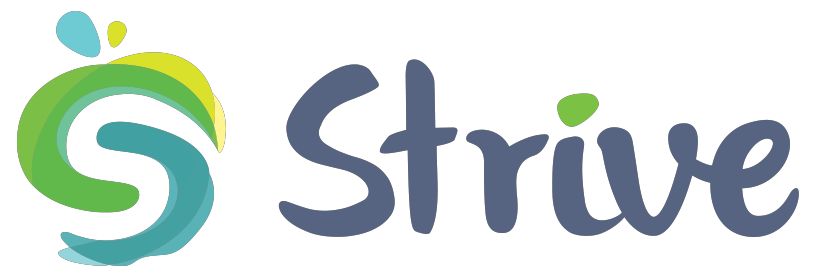
Professional Resources
Access to child care and early years resources is essential for professionals working in the sector. During this transformative time within our field, all professionals need to know where to find legislation, our regulatory framework and guiding documents. The Child Care and Early Years Act, 2014, the College of ECE framework that regulates and governs Ontario’s RECEs and other impactful documents can be found here.
PLEASE NOTE: The Government of Ontario is migrating Early Years Professional Resources to other sites. Some key documents have not yet been migrated or have been removed.
MINISTRY OF EDUCATION
ONTARIO RENEWED EARLY YEARS AND CHILD CARE POLICY FRAMEWORK (2017)
Ontario’s Renewed Early Years and Child Care Policy Framework (2017) sets a vision for a system in which all children and families have access to a range of high-quality, inclusive and affordable early years and child care programs and services that are child- and family-centred and contribute to children’s learning, development and well-being. A summary of the action items detailed within the framework is also available here: Towards Universally Accessible Child Care: Ontario’s Five-Year Action Plan.
On August 31, 2015, the Child Care and Early Years Act, 2014 (CCEYA) came into effect. This new legislation and regulatory framework replaced the Day Nurseries Act, but carried over many of its existing regulations.
CHILD CARE AND EARLY YEARS ACT (CCEYA) (2014)
HOW DOES LEARNING HAPPEN? ONTARIO'S PEDAGOGY FOR THE EARLY YEARS (2014)
How Does Learning Happen? Ontario’s Pedagogy for the Early Years (2014) is a resource guide about learning through relationships for those working with young children and families. It articulates a view of children, families and educators as competent and capable of complex thinking and is designed to support pedagogy and program development in the early years. As set out in the Minister’s policy statement issued in June 2015, all licensed child care programs are required to have a program statement that is consistent with this resource. There are supporting resources for Educators, Leaders and Home Child Care Providers. A How Does Learning Happen webcast is also available.
THINK, FEEL, ACT: LESSONS FROM RESEARCH ABOUT YOUNG CHILDREN (2013)
Think, Feel, Act: Lessons from Research About Young Children (2013) is a compilation of research briefs that highlight key research findings related to seven elements of early years program quality from leading experts in the field of early childhood. Accompanying video segments are also available.
THE KINDERGARTEN PROGRAM (2016)
The Kindergarten Program (2016) provides the pedagogical approaches and program considerations for Kindergarten in Ontario. Overall expectations are provided in the context of four frames: Belonging and Contributing, Self-Regulation and Well-Being, Demonstrating Literacy and Mathematics Behaviours and Problem Solving and Innovating. Copies are available for ordering through Service Ontario.
ONTARIO EARLY YEARS CHILD AND FAMILY CENTRES: A PUBLIC PLAN (2016)
Ontario Early Years Child and Family Centres: A Public Plan (2016) outlines the province’s plan to transform Ontario Early Years Centres, Parenting and Family Literacy Centres, Child Care Centres and Better Beginnings and Better Futures programs into Ontario Early Years Child and Family Centres by 2018.
RESOURCES FROM STRIVE EVENTS
Resources from Strive professional learning opportunities (including recordings, slides, and documents) that we have permission to share are available for FREE on Strive Online.
OTHER RESOURCES
COLLEGE OF EARLY CHILDHOOD EDUCATORS
The College of Early Childhood Educators is the professional self-regulatory body for early childhood educators in Ontario.
ASSOCIATION OF EARLY CHILDHOOD EDUCATORS ONTARIO (AECEO)
The AECEO is the professional association for ECEs and its primary purpose is to advocate for respect, recognition and appropriate wages and working conditions for all ECEs and care professionals.
ONTARIO COALITION FOR BETTER CHILD CARE (OCBCC)
The Ontario Coalition for Better Child Care is Ontario’s central advocacy group for a universal early childhood education and care system. They advocate for: low fees or no fees for parents; decent work and pay for educators; and an expansion of public and non-profit services.
Formed in 1981, the OCBCC is a member organization comprising local child care centres, national and provincial groups and individuals from all across Ontario. Our members are educators, parents, grandparents, centre directors and trade unionists.
CANADIAN CHILD CARE FEDERATION (CCCF)
Canadian Child Care Federation is committed to best practice in early childhood education. The organization is about the value of children. In order to protect and enhance our children, to promote their safety and their healthy growth and development, CCCF is committed to providing Canadians with the very best in early learning and child care knowledge and best practices. Their tools are research and knowledge dissemination, the creation and nurturing of active networks.
REVOLUTIONARY LEARNING
We are in a period of transformation in early childhood education in Ontario. As educators we need to be armed with knowledge of our practice to advocate for our profession. As competent and capable educators we can share our perspectives with others to encourage revolutionary thinking and learning in education.
By: Barb Jackson, MPEd, BA, RECE













